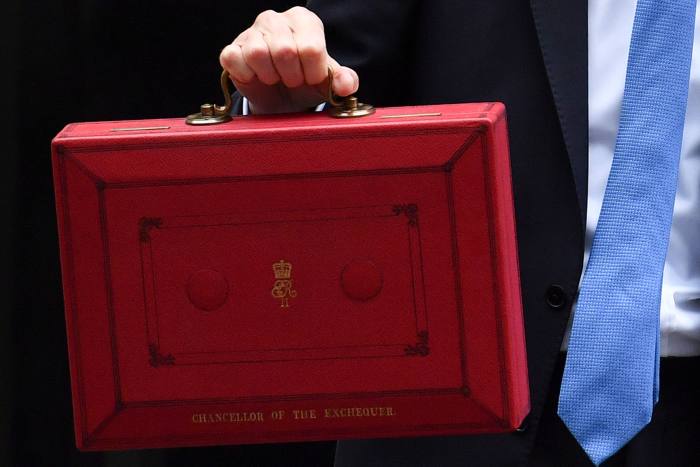Fleet rang the watchout nest’s bell three times and then phoned the bridge to announce: “Iceberg! Right Ahead!”. At 23:40 the Titanic struck the iceberg. 00:20, the crew started loading the lifeboats, it quickly became apparent the ship was not prepared for the crises. At 02:20 Titanic’s stern disappears into the ocean, never to be seen above the waves again.
We are currently at 23:39 with an economic iceberg, right ahead. During the budget on the 11 March this year, the Chancellor, Rishi Sunak pledged £30bn to protect the economy from coronavirus, this like the lifeboats on the Titanic, quickly became inadequate.
Last week we saw the extension of the Job Retention Scheme. Currently, just under a quarter of the UK’s workforce has been furloughed on this scheme, where 80 percent of an employee’s wages is paid for by the taxpayer.
Julian Jessop, the former Chief Economist at the Institute of Economic Affairs, estimated that, after the extension of the Job Retention Scheme, it will cost the taxpayer over £100 billion. The Government is now spending a greater percent of GDP on a six month Job Retention Scheme than the annual defence expenditure.
Two weeks ago, a new 100 percent taxpayer guaranteed business loan, the Bounce Back Loan Scheme was opened for applications. This scheme is particularly appealing to SMEs, as the taxpayer will cover a firm’s interest payments for the first year. James Hurley, Enterprise Editor at the Times reported that 69,000 loans, worth over £2 billion, were approved during the first 24 hours alone, that is three times the normal monthly SME lending volume out of the door in a single day.
Going back to my Titanic analogy, when Fleet uttered his famous words, First Officer William Murdoch ordered “hard astarboard”, which was an attempt to steer around the iceberg. This was a slow and complex task of setting the engines into reverse. By doing this it reduced the rudder’s effectiveness and, therefore impairing the turning ability of the ship. Some maritime historians now believe that if Murdoch turned the ship while maintaining her forward speed, Titanic might have missed the iceberg, with feet to spare.
A Coronavirus inquiry and future historians, will ask if a collision could have been avoided. Could the UK kept its forward speed with a more economically open strategy? Did we get it wrong and Sweden got it right? When we ask these questions we must remember that the plan was based on medical and scientific advice to keep, the huge, five-week spike below the point at which the NHS could handle the increased demand and allow us to build up Intensive Care Unit capacity. I generally believe that history will judge it as the correct decision.
That said, by putting on the engines of the country into reverse, it has meant the UK economy has effectively hit the iceberg. The turnover of money into business accounts has completely ceased. This means firms do not have the cash flow to pay overheads such as rent, bill or wages. The UK economy is relying on the support from the Treasury. Businesses need cash. Landlords need firms to pay rent. Employees need their places of work to survive. The fact is, the government had no other option but to put in place support packages to keep the country afloat.
One independent high street optician recently told me, even after taking the Job Retention Scheme into account, the firm still spends £10k a month to just keep the business going whilst it’s closed. Things like the Bounce Back Loan Scheme have helped, but it is not the end of the story. The Government support packages are only designed for the immediate crises, but this is only the tip of the iceberg.
The shared office space provider, WeWork has 45 sights in London. I just can’t see how they will be able to have desk demand to meet their own rent/ leasehold commitments. WeWork has moved to skip rent payments in New York and San Francisco already. Obviously WeWork is the poster child, but there are so many co-working spaces in London now, who will all be in the same boat. Will these office firms survive the year?
The treasury introduced the Small Business Grants Fund in March, to support high street firms with things like rent during the lockdown. A few independent commercial landlords have told me that tenants have not passed up this money, instead the funds are being used to service other payment demands. It’s not just small firms not paying rent, Burger King have confirmed they’re not planning to pay their Q2 rent on their; over 500, sites. Unpaid rent will see a domino effect on the solvency of landlords, who are businesses themselves, with many having mortgages.
The grants, loans, and job retention schemes will only go so far. When a business reopens they won’t go straight back to normal, it will take them months, quarters or even years to rebuild and get back into the black, that is, of course, if they can. In the meantime, many will struggle to pay debt, rent and staff.
The Chancellors schemes have supported firms during lockdown, but as we phase back outside, the government will need to continue to spend more money to support industry, particularly those sectors and regions which will be worse affected.
Before the crises, the Solent LEP commissioned Oxford Economics, to independently outline the area’s economic performance. The ‘Solent’ region is the area Portsmouth and Southampton mainly covers. Oxford Economics found that the region owes 20.5persent of its GVA to the marine and maritime sector. This provides 40,000 jobs in the area and supports more than 3,000 businesses.
A fair chunk of this GVA would have been as a result of the then-booming Superyacht manufacturing sector and the cruise liner industry. I doubt either Grans or Oligarchs will be hitting the high seas any time soon. The government will have to support those towns, firms and people who are worse hit.
Of course, it is not just spending on business and jobs that the government is funding, it has also bankrolled the fight against the virus itself. There will also be a need for funding in other areas. The County Councils Network, which represents 36 local authorities in England, said £5bn is needed to stop cuts to local services.
The Government has spent an awful lot since the last budget in March and will be set to spend a great deal more over the next few years. This brings us to the question of how we are going to pay for all of it.
It’s not as simple as raising taxes, after all, many businesses will be struggling to pay rent for months. An increase of Corporation Tax might push firms over the edge. You would need a huge increase of Income Tax and National Insurance, partially after you have adjusted for the loss of taxpayers who are now unemployed, to pay for the support schemes. Would the government be politically able to introduce huge tax hikes?
The Government is lucky, the gilt yields, the price the government can borrow money, are at an all time low. The Conservatives won the election on a pledge of borrow and spend. Now the Government can borrow the money it is spending to keep the economy alive.
It should be remembered though, whatever the treasury is spending during the coroa crises it will be on top of current spending, and will be part of future spending for years to come. We know that the Prime Minister has pledged money to the so called ‘blue wall’ seats in the North of England, and he has a penchant for expensive infrastructure projects, like HS2. Borrowing can not pay for all of this, the UK debt will soon head well above 100 percent of GDP, so it would be irresponsible to solely raise debt, no matter how cheap it is to borrow.
It would be hard for the government to introduce cuts. It’s not even a year since they announced, with great fanfare that austerity is over. The reality is we will need to balance the books. Whispers in Westminster is that the triple lock on state pension will be cut, but will that be enough? With the UK debt about to see the largest peacetime annual deficit, and no sign of a fast business resurgence, we may need real government austerity, then just the cut back in spending, we saw after the financial crash in 2008.
Frankly, we don’t know how much is being spent and on what. We need to know about the future plans to support British business and how much has been earmarked. Businesses need to know if they are adding a big tax bill to the list of ever growing expenditure. We need a budget, and we need one now.
It only took 161 minutes for the Titanic to sink, but it’s legacy has remained with us for over a century. We need an urgent budget so we can successfully paydown the Government’s lifeboats, so that the corona legacy is not a burden on our grandchildren.
Nic Conner is research fellow at the Bow Group and a consultant for the business finance specialists Rangewell

